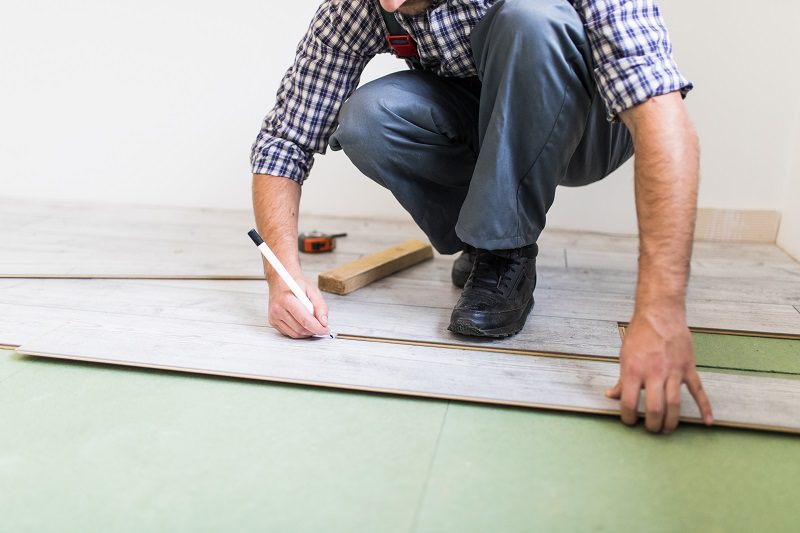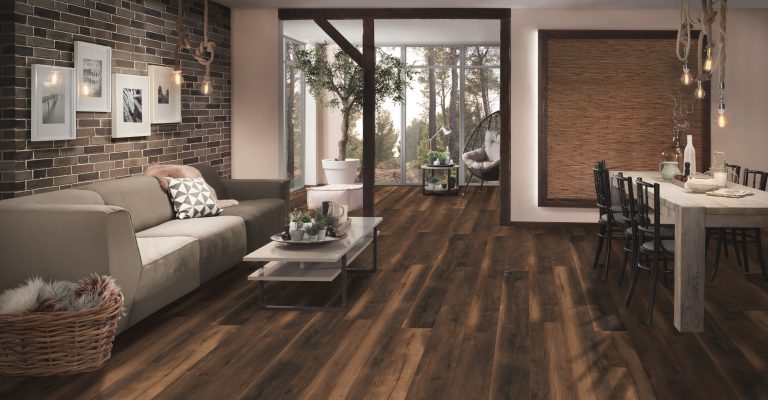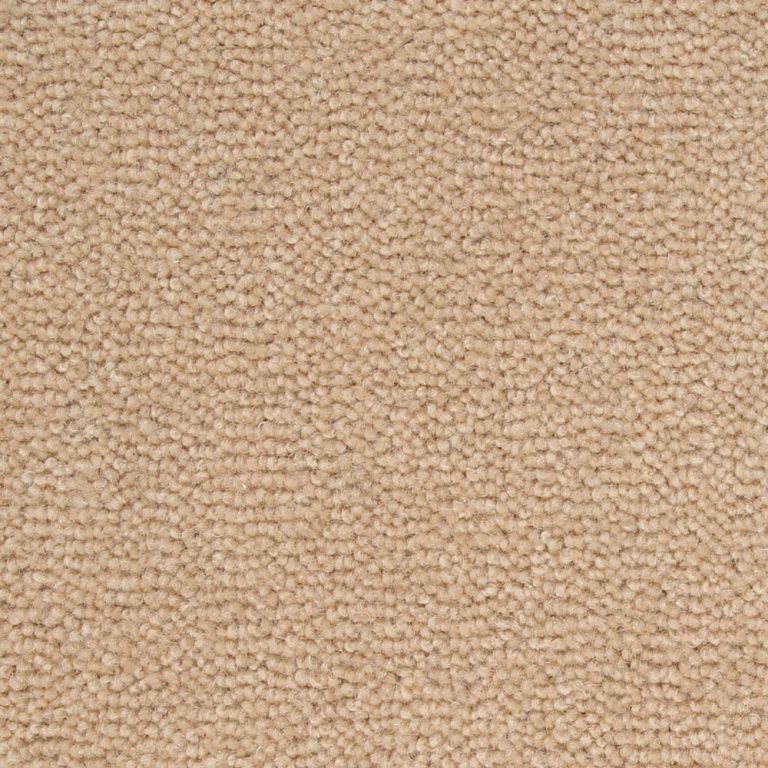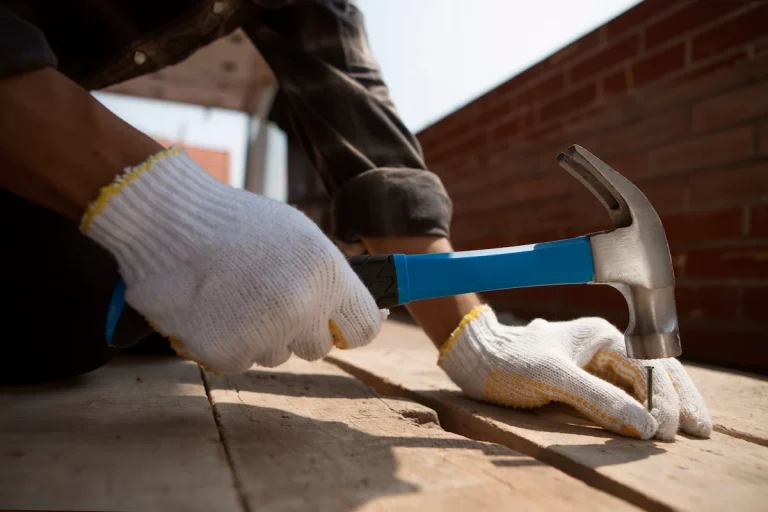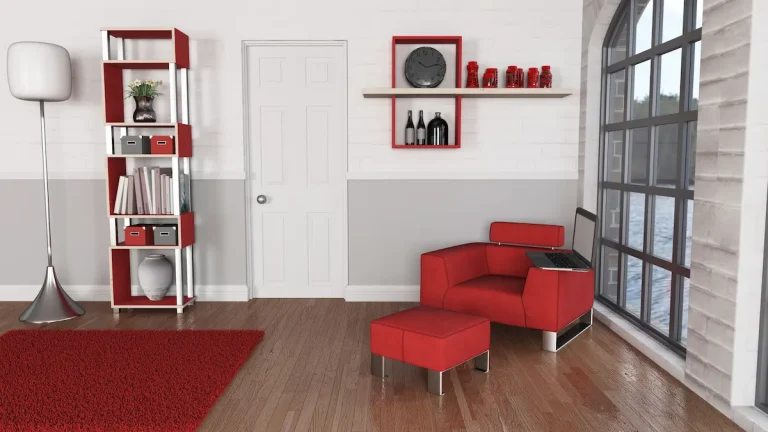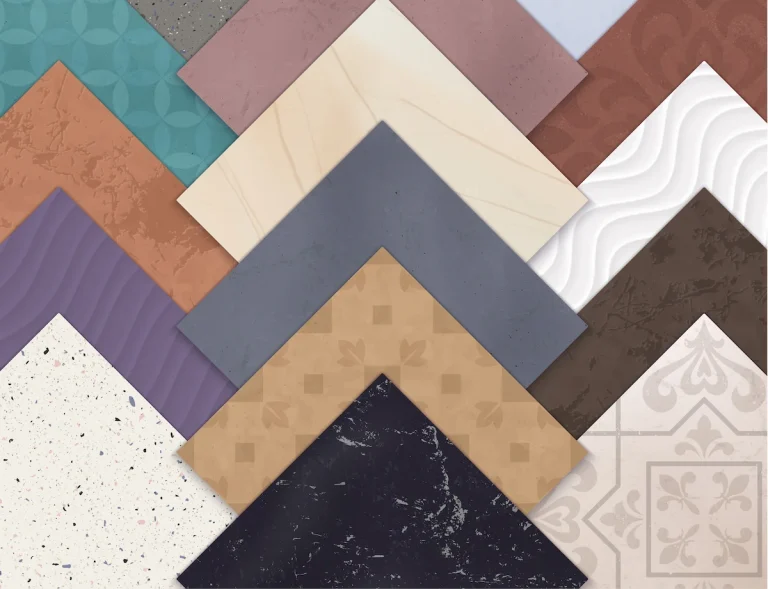Vinyl flooring has become a popular choice for homeowners due to its durability, easy maintenance, cost-effectiveness, and variety of styles. When choosing the right vinyl flooring thickness, there are key factors to consider.
We explore the different types of vinyl flooring thicknesses, choosing the right thickness for your space, installation methods for different thicknesses, and maintenance tips to keep your floors looking their best.
Find out everything you need to know about vinyl flooring thickness!
What Is Vinyl Flooring?
Luxury vinyl flooring, also known as LVT (Luxury Vinyl Tile) or LVP (Luxury Vinyl Plank), is a versatile flooring option made primarily of PVC (polyvinyl chloride) with various layers including a PVC core and top protective layer.
What sets luxury vinyl flooring apart is its exceptional durability, making it ideal for high-traffic areas in both residential and commercial spaces. The multi-layered construction of LVT/LVP provides enhanced resistance to scratches, stains, and water, offering long-lasting performance without compromising on style.
Moreover, luxury vinyl flooring comes in a myriad of design options, ranging from realistic wood and stone finishes to modern geometric patterns and vibrant colours, allowing homeowners and designers to achieve the desired aesthetic for any room.
Benefits of Vinyl Flooring
Vinyl flooring offers numerous benefits, including resistance to moisture, scratches, and dents, making it an ideal choice for high-traffic areas in residential and commercial spaces.
One of the key advantages of vinyl flooring is its low maintenance requirements, as it can be easily cleaned with regular sweeping and mopping, eliminating the need for specialised cleaning products. Its water-resistant properties make it a popular choice for areas prone to spills or moisture, such as kitchens and bathrooms. Moreover, vinyl flooring is known for its durability, standing up well to heavy foot traffic and everyday wear and tear. It comes in various types, including luxury vinyl tile (LVT), vinyl plank, and sheet vinyl, offering a wide range of designs to suit different décor styles.
a. Durability
One of the key benefits of vinyl flooring is its durability, with luxury vinyl planks like Floorify offering exceptional strength and longevity.
Constructed with multiple layers, including a sturdy core and wear layers that provide protection against daily wear and tear, Ashton Bergen Hills luxury vinyl planks are designed to withstand high-traffic areas in homes or commercial spaces.
Their superior resistance to stains and scratches makes them an ideal choice for busy households or places prone to spills and scuffs. This feature ensures that the flooring retains its pristine appearance even after years of use, requiring minimal maintenance and upkeep for long-lasting beauty.
b. Easy Maintenance
Linoleum flooring is known for its easy maintenance, requiring regular sweeping and occasional mopping to keep it looking pristine. Trusted brands like MSI offer high-quality linoleum flooring options through authorised dealers.
Aside from routine cleaning, it’s essential to use gentle cleaning solutions to prevent damage to the flooring surface.
- Regularly sweep or vacuum to remove dust and debris that can scratch the surface.
- For tougher stains, use a damp mop with a mild cleaner recommended by the flooring manufacturer.
- Place doormats at entrances to prevent dirt and grit from being tracked onto the linoleum floors.
When choosing linoleum flooring, opt for reputable brands like MSI, known for their durability and variety. It’s advisable to purchase from authorised distributors to ensure quality products and reliable customer service.
c. Cost-Effective
Along with its durability and aesthetics, vinyl flooring is a cost-effective option for homeowners, with brands like Luvanto offering budget-friendly solutions without compromising on quality.
Choosing vinyl flooring can not only save money upfront with its affordable price point, but it also proves to be a wise long-term investment due to its durability and low maintenance requirements. Luvanto, known for providing a wide range of vinyl flooring options, ensures that homeowners can enjoy both cost-effectiveness and high-quality products.
d. Variety of Styles
Vinyl flooring offers a wide range of styles and designs to suit any interior aesthetic, with options like the Karndean Art Select Collection providing versatile choices for modern and traditional spaces.
These luxury vinyl planks are not only visually appealing but also highly durable, making them ideal for high-traffic areas in residential or commercial settings. Available in a plethora of design options such as wood, stone, and tile effects, they effortlessly mimic the look and texture of natural materials.
The colour palettes range from classic neutrals to bold and vibrant hues, allowing homeowners and designers to create personalised and distinctive flooring designs.
In the current vinyl flooring market, the trend is leaning towards larger planks and tiles, providing a more spacious and modern aesthetic to interiors. This shift towards wider planks and tiles alongside intricate patterns and textures, offers endless possibilities for creating unique and dynamic flooring compositions.
What Is Vinyl Flooring Thickness?
Vinyl flooring thickness refers to the measurement of the material’s layers, determining its durability, comfort underfoot, and suitability for different spaces.
The thickness of vinyl flooring plays a crucial role in its performance and longevity. Typically, vinyl floors come in various thickness options, ranging from 2mm to 8mm.
- Thinner vinyl, such as 2mm, is ideal for low-traffic areas like bathrooms or laundry rooms.
- On the other hand, thicker options like 8mm provide better insulation, and soundproofing, and are suitable for heavy foot traffic areas like kitchens or living rooms.
Choosing the right thickness ensures that your vinyl flooring withstands daily wear and tear while offering the desired level of comfort and aesthetics.
Different Types of Vinyl Flooring Thickness
How thick is vinyl tile flooring? Vinyl flooring thickness can vary, with options ranging from standard thickness to super luxury thickness, providing choices for different needs and preferences.
a. Standard Thickness
Standard vinyl flooring thickness is a common choice for residential applications, offering a balance of durability and affordability while meeting basic performance requirements.
When considering standard vinyl flooring thickness, it’s important to note that this type of flooring typically ranges from 2 mm to 4 mm in thickness. The thicker the vinyl, the more durable and long-lasting it tends to be, making it suitable for high-traffic areas such as living rooms, kitchens, and hallways. On the other hand, thinner vinyl flooring, around 2mm, is often used in areas with less foot traffic like bedrooms and bathrooms.
See product: Karndean Knight Tile Rigid Core Honey Limed Oak
b. Luxury Thickness
Luxury vinyl flooring with increased thickness, such as WPC (Wood Plastic Composite), provides enhanced comfort and sound insulation, making it a premium choice for residential and commercial interiors. luxury vinyl flooring falls in the 4-5 mm range, providing enhanced durability and comfort underfoot. This type is well-suited for high-traffic areas and commercial settings.
Thicker luxury vinyl flooring brings added benefits beyond just aesthetics. The increased thickness of WPC flooring equips it with superior durability, ensuring longevity even in high-traffic areas. This makes it a practical and cost-effective solution for spaces that demand both style and resilience.
The thicker composition of WPC flooring contributes to its noise-reducing properties, creating a peaceful and serene environment. The comfort underfoot offered by the added thickness enhances the overall user experience, making walking and standing for extended periods more comfortable.
See product: Floorify Big Tiles Pebble Beach
c. Super Luxury Thickness
What is the thickest vinyl flooring? Super luxury vinyl flooring thickness, which can be around 6mm or more, offers maximum durability and high-end aesthetics. It is perfect for areas that demand extreme durability and performance, such as busy retail spaces or healthcare facilities.
The specialised underlayment not only adds an extra layer of moisture protection but also enhances the overall thermal insulation of the flooring. This makes it a popular choice in environments where maintaining a consistent indoor temperature is crucial. In addition, the cushioning effect provided by the thickness of the super luxury vinyl flooring adds a luxurious feel underfoot, making it perfect for high-traffic areas like living rooms or bedrooms.
See product: Karndean Van Gogh Rigid Core Salvaged Barnwood (Small)
How to Choose the Right Thickness for Your Space
What is the best thickness for luxury vinyl flooring? Selecting the appropriate vinyl flooring thickness involves considerations such as the subfloor condition, expected foot traffic, room size, and available budget to ensure optimal performance and longevity.
When determining the vinyl flooring thickness for your space, it’s crucial to match it with the type of subfloor you have. Thicker vinyl options are more suitable for uneven subfloors, providing better durability and insulation.
If your space experiences high foot traffic daily, opting for thicker vinyl flooring can withstand the wear and tear more effectively, ensuring it lasts longer without losing its appeal. On the contrary, for rooms with minimal traffic, a thinner vinyl could be a cost-effective choice.
a. Consider the Subfloor
When choosing vinyl flooring thickness, evaluating the subfloor material, particularly for cushion flooring with PVC core, is crucial to ensure proper installation and performance. Assessing the subfloor type serves as the foundation for a successful vinyl flooring project. The subfloor’s structural integrity can determine the durability and longevity of the installation. A subfloor with imperfections can lead to uneven surfaces and premature wear on the vinyl surface.
Different subfloor materials, such as concrete, plywood, or existing flooring, may require specific preparation techniques to accommodate the cushion flooring with PVC components. Moisture levels in the subfloor must also be considered to prevent future issues like mould or warping. Subfloor conditions directly influence the choice of vinyl flooring thickness. An inadequate subfloor may necessitate thicker vinyl to provide proper cushioning and insulation. In contrast, a solid subfloor might allow for thinner vinyl options without compromising functionality.
b. Foot Traffic
Considering the expected foot traffic, especially in high-traffic areas like entryways and corridors, helps determine the suitable vinyl flooring thickness, with luxury vinyl tiles offering durability and style.
High foot traffic areas demand durable flooring solutions that can withstand wear and tear without compromising on aesthetics. Luxury vinyl tiles, commonly known as LVT, are a popular choice for such spaces due to their exceptional resilience and wide range of design options. These tiles come in various thicknesses, ranging from 2mm to 8mm, catering to different levels of traffic intensity. Their protective wear layer shields against scratches and stains, ensuring long-lasting beauty even in busy environments.
c. Room Size
The dimensions of the room play a role in choosing the right vinyl flooring thickness, with considerations like cushion vinyl flooring thickness ensuring comfort and noise reduction in larger spaces such as living rooms and bedrooms.
In terms of larger areas like living rooms, bedrooms, or open-plan spaces, selecting a cushion option can make a significant difference.
- A thicker vinyl padding provides more underfoot comfort, especially in areas where people spend prolonged periods standing or walking.
- In rooms with high foot traffic, such as corridors or kitchens, a thicker cushion can absorb noise, reducing the impact of footsteps and creating a quieter environment.
- Consider the layout of the room as well; for instance, in a bedroom where carpeting is not an option, a plush cushion under the vinyl can add warmth and softness underfoot.
d. Budget
Budget considerations are essential when choosing vinyl flooring thickness, with cost-effective options like SPC (Stone Plastic Composite) providing a balance of quality and affordability for different renovation projects.
When planning a home improvement or refurbishment, it is crucial to strike the right balance between cost and quality. Vinyl flooring, known for its versatility and resilience, has become a go-to option for many homeowners. Opting for SPC thickness not only ensures durability but also offers a wide range of styles, colours, and textures to suit various interior designs. The advantage of SPC lies in its ability to withstand heavy foot traffic, moisture, and wear, making it a practical choice for spaces that demand both aesthetic appeal and longevity.
Installation Methods for Different Thicknesses
Vinyl flooring thickness influences the installation method, with options such as the glue-down method, floating method, and loose lay method tailored to specific thicknesses for secure and efficient installations.
In terms of vinyl flooring, choosing the right thickness is crucial for a successful installation. For thinner vinyl, typically around 2mm, the floating method is often preferred as it allows the planks to interlock without adhesive, making it a popular choice for DIY enthusiasts. On the other hand, thicker vinyl, say around 5mm or more, might require the glue-down method to ensure a firm bond to the subfloor.
For those looking for a middle ground, the loose lay method can be a versatile option, especially for moderate-thickness vinyl flooring, providing stability and easy maintenance. Always remember to follow manufacturer guidelines for the specific installation technique best suited to your vinyl flooring thickness.
a. Glue-Down Method
For thicker vinyl flooring options, such as those with a PVC core, the glue-down method is commonly used to ensure a secure and permanent installation that enhances stability and longevity.
Using the glue-down method starts with preparing the subfloor meticulously to ensure a smooth and clean surface. It’s crucial to remove any debris, dirt, or old flooring material that could hinder the adhesive bond. Choosing the right adhesive is key; opt for a high-quality adhesive recommended by the flooring manufacturer to guarantee a strong and lasting hold.
One of the most common questions about glue-down installation is about the setting time of the adhesive. Allow ample time for the adhesive to properly cure before walking on the floor or moving furniture back in place. Consider the room temperature and humidity levels to optimise the bonding process.
Once the installation is complete, proper maintenance is essential for the longevity of your vinyl floor. Routine cleaning with a specified cleaner for vinyl flooring and avoiding harsh chemicals will help preserve its appearance and durability over time.
b. Floating Method
The floating method is suitable for luxury vinyl flooring with enhanced thickness, like WPC, offering a convenient installation solution that allows for flexibility, easy repair, and moisture resistance in residential and commercial settings.
One of the key advantages of using the floating installation method for thicker vinyl flooring types, such as WPC, is its versatility. This method allows the planks to interlock seamlessly without the need for adhesives, making it ideal for a variety of environments. The floating installation ensures that the floor remains stable over time, minimising issues such as warping or buckling.
c. Loose Lay Method
The loose lay method is a popular choice for luxury vinyl planks of varying thicknesses, allowing for quick and efficient installation without the need for adhesives, making it a DIY-friendly option for renovators.
One of the key advantages of the loose lay method is its flexibility, as it can easily adapt to uneven subfloors and can be replaced or rearranged with minimal effort.
This installation technique is known for its simplicity, making it ideal for homeowners looking for a hassle-free flooring solution that still offers durability and aesthetic appeal.
Whether you are working with thin or thick luxury vinyl planks, the loose lay method provides a secure and stable installation without compromising on style or functionality.
Maintenance Tips for Different Thicknesses
Maintaining vinyl flooring of various thicknesses involves regular cleaning routines, avoiding harsh chemicals that may damage the surface, and promptly addressing any damages to preserve the floor’s appearance and longevity.
In terms of cleaning vinyl floors, it’s essential to start with a gentle approach. Use a soft-bristled broom or a vacuum with a soft brush attachment to remove dust and debris. For a deeper clean, damp mop the floor with a solution of warm water and a mild detergent specifically formulated for vinyl.
- Avoid using abrasive cleaners or scrub brushes that can scratch the surface,
- Always wipe up spills immediately to prevent staining,
- Consider using furniture pads to protect the flooring from scratches and indentations.
Frequent sweeping or vacuuming can help prevent grit and dirt from scratching the surface over time.
a. Regular Cleaning
Regular cleaning of vinyl flooring, with or without UV protection, involves sweeping, mopping, and occasional use of recommended cleaning products to remove dirt, and stains, and maintain the floor’s finish for long-lasting performance.
Cleaning vinyl floors not only enhances the aesthetic appeal of your space but also plays a crucial role in prolonging the lifespan of the flooring. UV protection is essential for safeguarding the colour and surface integrity of vinyl flooring from harmful sun rays. Without proper maintenance, vinyl floors can lose their sheen and vibrancy over time.
By implementing a regular cleaning routine and utilising products specifically designed for vinyl, you can effectively prevent discolouration, scratches, and other forms of damage. Learn more about best ways of how to clean vinyl flooring.
b. Avoid Harsh Chemicals
To prevent damage to vinyl flooring, especially cushion options, it is crucial to avoid using strong chemicals, abrasive cleaners, or wax-based products that can degrade the material’s quality and appearance over time.
Using strong chemicals on vinyl flooring can lead to discolouration, peeling, and loss of shine, affecting the overall look and longevity of the floor. Opting for mild cleaning agents and pH-neutral solutions is recommended for regular maintenance. These products effectively remove dirt and stains without causing harm to the vinyl’s protective layer. Following specific care instructions provided by manufacturers can help preserve the flooring’s integrity and aesthetics for years to come.
c. Repairing Damages
For luxury vinyl tiles with varying thicknesses, addressing damages promptly through DIY repairs or professional assistance helps maintain the floor’s condition and extend its lifespan, ensuring long-term satisfaction with the flooring investment.
In terms of repairing luxury vinyl tiles, the key lies in identifying the type of damage first. Scratches, dents, or stains may require different approaches, but having the right repair kit on hand can make the process smoother. Quick interventions are crucial to preventing the damage from spreading and causing further harm to the flooring.
While DIY repairs can be effective for minor issues, seeking expert services for more complex damages ensures a professional touch and lasting results. Professional repair specialists have the skills and tools to tackle deep scratches or extensive dents without compromising the integrity of the flooring.
Come to our Teka Flooring store in Peterborough, UK and get free consultation about the right vinyl flooring thickness for your home. Our vinyl flooring is made with a high-quality, durable material that is perfect for both residential and commercial applications.
It is also available in a variety of styles and colours to suit any taste or décor, the brown one like Floorify Long Planks Eivissa or a perfect grey like Karndean Art Select Oak Royale Storm Oak.
To get the best results, you can use our professional stress-free carpet fitting and flooring installation services. Call us today on 01733 731 930!
Read Also:


























